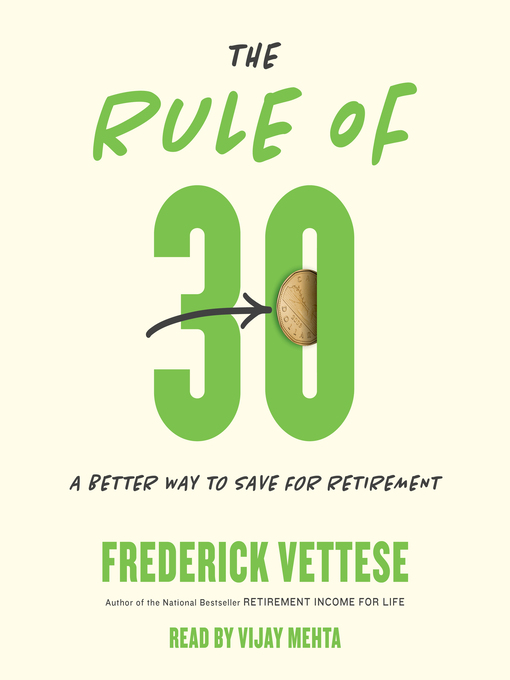Consider the age-old question of how much you should save to enjoy a comfortable retirement: Are your knees knocking? Are you nervously biting your nails?
In The Rule of 30 personal finance expert Frederick Vettese provides a surprising — and hopeful — answer. Through conversations between a young couple and their neighbor, a retired actuary, the couple and the reader discover:
The Rule of 30 changes the mindset from saving the same flat percentage of pay to saving when it is most convenient to your situation. In most cases, it means less saving early on while mortgage payments are high and children are costly, and more saving later.
Saving for retirement is a high priority, but it is not the only priority in life. It is time to dispense with old myths like "just save 10% of your take-home pay." The truth is we should save differently throughout our pre-retirement years — and The Rule of 30 is a road map for doing so.


